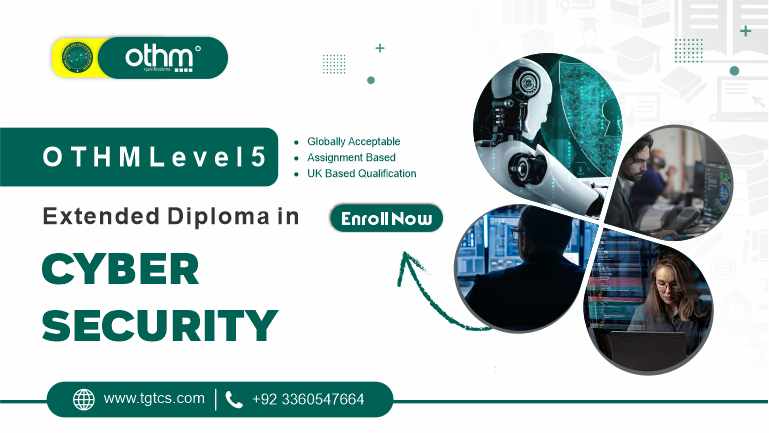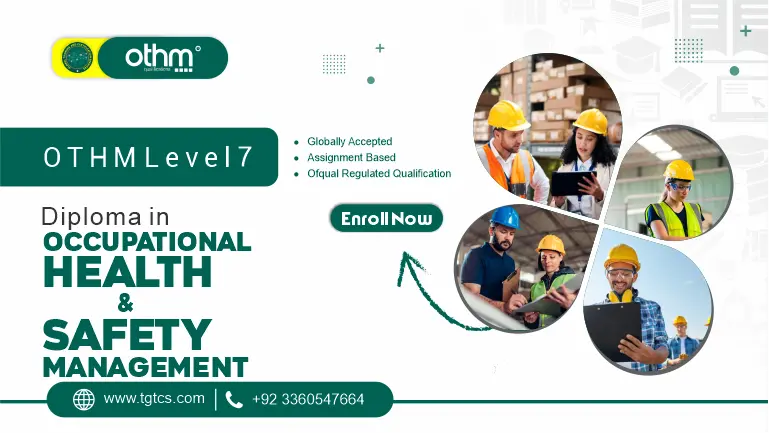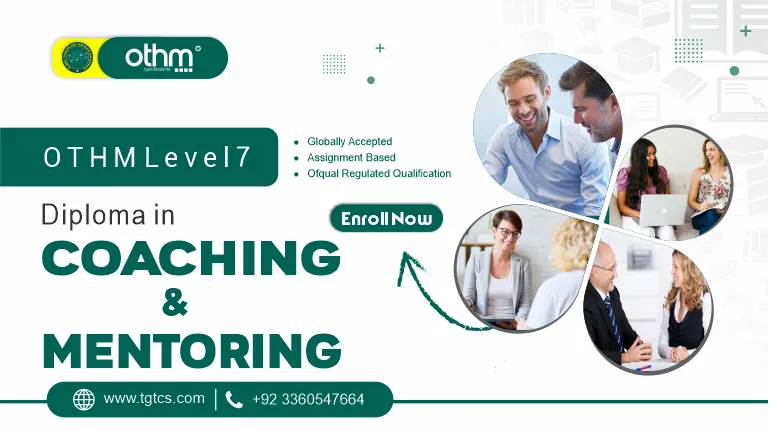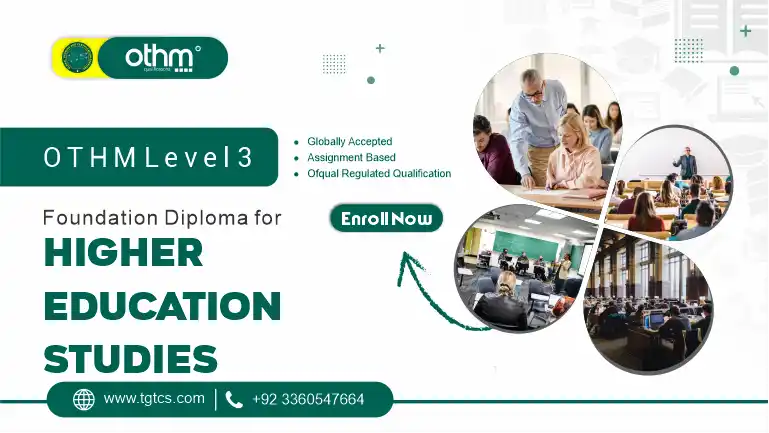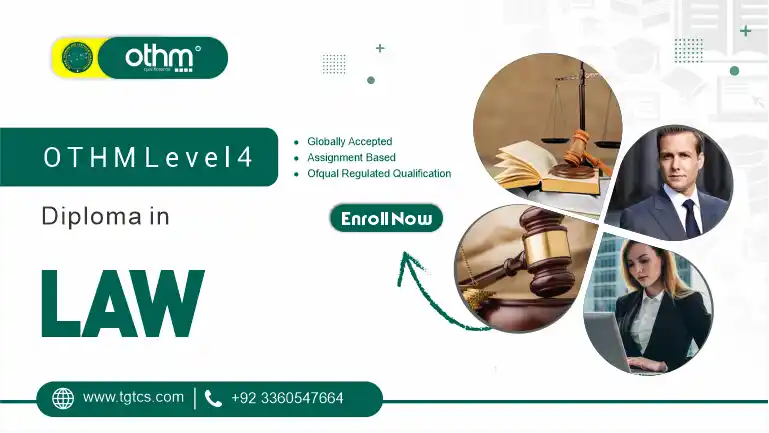OTHM Level 3 International Certificate in Environmental Management
In today’s world, environmental sustainability is at the forefront of global discussions. Businesses, governments, and individuals alike are increasingly aware of the need to protect our environment for future generations. One way to gain critical knowledge and skills to contribute to these efforts is through the OTHM Level 3 International Certificate in Environmental Management. This internationally recognized certification is designed for those eager to understand and implement sustainable practices in various sectors.
The OTHM Level 3 International Certificate in Environmental Management is an entry-level qualification aimed at providing individuals with foundational knowledge in environmental management. This course is perfect for those starting their career in environmental management or looking to build their expertise in sustainability practices.
The OTHM Level 3 Certificate is typically assessed through assignments, coursework, and examinations. The assessment methods are designed to test your understanding of the course material and your ability to apply it in real-world scenarios. This ensures that you gain practical knowledge that can be directly applied to environmental management tasks.
The OTHM Level 3 International Certificate in Environmental Management is an excellent starting point for individuals seeking a career in environmental sustainability and management. It offers global recognition, practical knowledge, and a solid foundation for further studies in the field. Whether you are a recent graduate, a business professional, or someone eager to switch careers, this qualification will provide you with the essential skills to make a positive impact on the environment.
The Global Training and Certification Services (TGTCS) is Offering this qualification is Association with ICTQual UK
The OTHM Level 3 International Certificate in Environmental Management is an entry-level qualification designed to provide foundational knowledge and skills in environmental management. This course is ideal for individuals looking to start a career in environmental management or enhance their understanding of sustainability practices. It covers key areas such as environmental laws, waste management, sustainable development, and environmental impact assessment.
Recognized globally, this certification opens up career opportunities in roles such as environmental officer, sustainability coordinator, and environmental consultant. With minimal entry requirements and flexible learning options, the OTHM Level 3 Certificate provides a solid foundation for those looking to make a positive impact in environmental protection and sustainability.
Upon successful completion of the OTHM Level 3 International Certificate in Environmental Management, learners will be able to:
- Understand Environmental Principles and Practices:
- Demonstrate an understanding of the key environmental concepts, principles, and practices in the context of environmental management.
- Identify and explain the relationship between environmental systems and human activities.
- Identify Environmental Issues:
- Recognize various environmental challenges such as pollution, climate change, deforestation, and loss of biodiversity.
- Assess the impact of human activities on local, regional, and global environments.
- Apply Legal and Regulatory Frameworks:
- Identify and understand national and international environmental legislation, regulations, and policies.
- Understand the role of environmental standards, certifications, and best practices in managing environmental risks.
- Evaluate Environmental Management Tools:
- Understand and apply various environmental management tools, such as environmental impact assessments (EIA), life cycle analysis (LCA), and environmental audits.
- Evaluate the effectiveness of these tools in managing environmental performance.
- Understand Sustainability and Resource Management:
- Recognize the importance of sustainability in environmental management and the need for sustainable development practices.
- Understand the principles of resource conservation, waste management, energy efficiency, and the role of renewable resources.
- Communicate Environmental Issues and Solutions:
- Develop the skills to effectively communicate environmental issues and sustainability solutions to diverse audiences, including stakeholders, the public, and decision-makers.
- Use clear, evidence-based arguments to support environmental policies and practices.
- Assess and Mitigate Environmental Risks:
- Identify environmental risks associated with various industries, activities, and practices.
- Develop strategies to mitigate or reduce environmental impacts through effective management techniques and sustainable practices.
- Contribute to Sustainable Environmental Practices:
- Develop practical skills to participate in or contribute to the implementation of environmental management systems (EMS).
- Promote environmental awareness and advocate for best practices in environmental sustainability within an organization or community.
- Understand the Role of Business in Environmental Management:
- Explore the impact of business operations on the environment and the importance of integrating environmental management into business strategy.
- Understand the role of corporate social responsibility (CSR) in driving environmental sustainability efforts.
- Work in Teams and Demonstrate Problem-Solving Skills:
- Develop teamwork skills for collaborative environmental projects, demonstrating the ability to work effectively with others to achieve environmental management goals.
- Apply problem-solving techniques to environmental challenges and develop actionable solutions.
These outcomes aim to provide learners with the foundational knowledge, skills, and competencies to understand and address environmental issues, contributing to sustainable management practices in various sectors.
Mandatory Units
The Units of OTHM Level 3 International Certificate in Environmental Management are as :
- Introduction to Environmental Management
- Environmental Legislation and Regulation
- Environmental Assessment and Audit
- Implementation of Environmental Management Systems
- Sustainability and Resource Management
- Environmental Management in Practice
The OTHM Level 7 International Diploma in Process Safety Management (PSM) offers numerous benefits for professionals seeking to advance their careers in safety leadership, risk management, and process safety across high-risk industries. Here are the key benefits of pursuing this advanced qualification:
1. Globally Recognized Accreditation
The OTHM Level 7 Diploma is accredited by OTHM and recognized internationally, ensuring that your qualification holds global value. This opens doors to job opportunities worldwide in sectors such as chemical, petrochemical, energy, manufacturing, and oil & gas.
2. Enhanced Career Opportunities
By completing the course, you position yourself for career progression into senior safety management roles, including Process Safety Manager, Risk Management Consultant, Safety Director, and HSE Manager. This qualification increases your chances of landing leadership roles that command higher salaries and greater responsibility.
3. Comprehensive Knowledge of Process Safety
The course provides deep insights into process safety management (PSM), covering crucial areas like risk assessment, hazard analysis, safety management systems, emergency response, and safety culture. You’ll be well-equipped to manage and mitigate risks in complex, high-hazard environments.
4. Practical Application of Risk Management
Through the course, you will gain hands-on skills in assessing and managing process risks. The program prepares you to apply risk management tools and techniques to prevent accidents and enhance safety across industrial processes, making you a valuable asset to employers.
5. Improved Organizational Safety
This diploma emphasizes the creation and implementation of effective safety management systems (SMS) that align with international standards. Upon completion, you’ll be capable of designing and managing safety programs that ensure compliance with regulations and reduce risks to people, assets, and the environment.
6. Pathway to Higher Education
The OTHM Level 7 Diploma in PSM serves as a pathway for further education, including Master’s programs or other postgraduate qualifications. Many universities accept this diploma for entry into advanced degree courses in process safety, industrial management, or related fields, helping you further specialize your knowledge.
7. Flexible Learning Options
The course offers flexible learning options, including online and distance learning, which allows professionals to study at their own pace while balancing work and personal commitments. This flexibility makes it ideal for busy professionals who wish to enhance their qualifications without interrupting their career.
8. Leadership and Safety Culture Skills
A major focus of the diploma is on leadership and fostering a safety-first culture within organizations. As a graduate, you’ll have the tools to lead safety initiatives, influence organizational safety practices, and create an environment where safety is prioritized at every level.
9. Regulatory Compliance Expertise
With a focus on global safety standards such as OSHA, ISO 45001, and EPA, this course ensures you are equipped to navigate the complexities of safety compliance. You’ll be prepared to lead organizations in meeting regulatory requirements and ensuring industry best practices are followed.
10. Real-World Impact
The skills gained through the OTHM Level 7 Diploma in PSM have a direct impact on safety in high-risk industries. Graduates can significantly reduce operational hazards, prevent accidents, improve safety performance, and ensure organizational compliance, contributing to a safer working environment for all.
11. Increased Earning Potential
With a specialization in process safety management, you’ll be qualified for higher-paying roles with greater responsibility. The demand for skilled process safety professionals continues to grow, making this diploma a valuable asset that can boost your earning potential in the long term.
12. Industry-Relevant Content
The course curriculum is designed to meet the real-world challenges faced by professionals in high-hazard industries. By focusing on practical safety management strategies, risk reduction, and compliance with safety regulations, the diploma ensures that you are prepared to meet the demands of the modern workplace.
13. International Career Mobility
As industries around the world strive to improve their safety practices, professionals with a Level 7 Diploma in Process Safety Management are in high demand globally. Whether you are working in local or international markets, this qualification will give you the flexibility and recognition to advance your career anywhere.
The OTHM Level 7 International Diploma in Process Safety Management (PSM) is designed for experienced professionals who are looking to enhance their expertise in process safety and risk management. This advanced qualification is ideal for individuals who are already working in safety, engineering, or process management roles and want to deepen their knowledge in high-risk industries. Below are the key characteristics of the ideal learner for this course:
1. Professional Background in Safety or Engineering
The ideal learner typically has a background in safety management, engineering, process management, or other technical fields related to industrial operations. Those with experience in sectors such as chemical engineering, petrochemicals, oil and gas, manufacturing, or energy will find the course particularly relevant.
2. Experience in High-Risk Environments
Individuals with at least 2-3 years of experience working in high-risk environments, where process safety and risk management are critical, will benefit the most from this course. Experience in hazardous industries such as oil and gas, chemicals, or energy will provide a strong foundation for the advanced topics covered in the diploma.
3. Current or Aspiring Safety Leaders
This qualification is ideal for professionals aiming to move into leadership roles within safety management, including positions such as Process Safety Manager, Safety Director, Risk Manager, or HSE Manager. It is designed to enhance leadership capabilities and strategic decision-making in managing process safety at a senior level.
4. Individuals Seeking Career Advancement
Professionals who are looking to advance their careers in process safety management or related fields will find this course to be an excellent opportunity to develop the technical and leadership skills necessary for career progression. Those interested in gaining senior roles or specializing in process safety will benefit from the knowledge and credentials offered by the diploma.
5. Ambitious Professionals Looking for Global Opportunities
The OTHM Level 7 Diploma in PSM is ideal for those seeking international career mobility. As the course is recognized globally, it is perfect for individuals looking to work in multinational companies or in various countries where process safety expertise is highly sought after.
6. Individuals Committed to Improving Safety Standards
The course is designed for professionals who are passionate about improving safety standards, reducing operational risks, and ensuring compliance with regulatory requirements. Those committed to advancing safety practices within their organizations and industries will benefit from the course’s comprehensive approach to process safety.
7. People with a Level 6 Qualification or Equivalent Experience
Learners should have a Level 6 qualification (such as a Bachelor’s degree) in a related field, such as engineering, safety, or process management, or possess equivalent professional experience. The diploma builds on this existing knowledge and provides advanced skills in process safety management.
8. Self-Motivated and Capable of Independent Learning
Given the advanced nature of this qualification, the ideal learner should be self-motivated, capable of managing their studies alongside work commitments, and able to engage in independent learning. The course is available in flexible formats, such as online or distance learning, making it suitable for busy professionals.
The OTHM Level 7 International Diploma in Process Safety Management (PSM) is designed to provide advanced knowledge and skills in managing process safety risks in various industrial environments. As industries continue to grow and evolve, so too will the demand for professionals who can ensure that safety standards are met while managing process safety risks effectively. Here’s an outline of the future progression for someone completing this course:
1. Advancement in Career Roles:
- Leadership Positions: Graduates will be positioned for roles such as Process Safety Managers, Health and Safety Directors, or Operational Risk Managers. This diploma equips candidates with the tools and knowledge required to lead safety programs within large organizations.
- Global Opportunities: Given its international focus, graduates can pursue opportunities worldwide, particularly in sectors like oil & gas, chemicals, pharmaceuticals, and manufacturing, where process safety management is crucial.
- Specialist Roles: There will be an increasing demand for process safety specialists, who can guide organizations in implementing industry best practices, conducting audits, risk assessments, and developing safety culture within high-risk environments.
2. Technological Advancements in Safety Management:
- Integration of Technology: With the rise of Industry 4.0, graduates of the OTHM Level 7 Diploma will likely be involved in incorporating new technologies such as predictive analytics, artificial intelligence (AI), and the Internet of Things (IoT) into safety systems. These technologies can help detect and mitigate risks before incidents occur, making process safety management more data-driven and proactive.
- Automation and Remote Monitoring: The integration of automation in process safety management will be more prevalent. Graduates may work on developing and managing systems that provide real-time data monitoring and decision-making in hazardous environments.
3. Continuous Learning and Certification:
- Post-Diploma Certifications: There will be a growing need for continuous education in process safety, leading to additional certifications or specialized qualifications in areas like Risk Management, Hazard Identification, and Safety Leadership. This ensures that professionals stay updated with regulatory changes and advancements in safety technology.
- Specialized Training Programs: As industries adopt more sophisticated and complex technologies, training programs will evolve to address niche needs, such as cybersecurity for process safety or crisis management in high-risk settings.
4. Regulatory and Compliance Growth:
- Increased Regulatory Demands: Governments and international bodies will continue to raise the bar for safety standards, requiring stricter compliance with environmental, health, and safety regulations. Graduates of the OTHM Level 7 Diploma will play a key role in ensuring that organizations are in line with these evolving regulations.
- ISO 45001 and Other Standards: The need for ISO certification in safety and environmental management will drive the demand for graduates who can help organizations achieve and maintain these standards. Process Safety Management will likely be incorporated into broader health and safety certifications, with new frameworks emerging globally.
5. Contribution to Safety Culture:
- Cultural Transformation: Process safety is not only about implementing technical measures but also fostering a safety culture within organizations. Graduates will lead efforts to instill a culture of safety, where all employees are engaged and contribute to the identification, assessment, and management of risks.
- Behavioral Safety: There will be an increased focus on behavioral safety programs, aiming to reduce human error by influencing employee behavior and ensuring they adhere to safety protocols. Graduates will be involved in designing and executing these programs.
6. Industry-Specific Specialization:
- Sector-Specific Roles: The future will see a growing trend for professionals specializing in process safety for specific sectors. For example, graduates may focus on process safety in the pharmaceutical industry, energy sector, or manufacturing, addressing the unique challenges and risks present in these industries.
- Risk Management in Hazardous Industries: The importance of process safety in high-hazard sectors (e.g., oil & gas, chemical production, power generation) will continue to drive the need for specialized knowledge in areas like HSE management, emergency response, and hazardous materials handling.
7. Global Collaboration:
- Cross-Border Cooperation: Given the international scope of this qualification, future professionals will often work in multinational teams and collaborate on safety initiatives that span borders. This might include joint ventures, partnerships, and international safety standards development.
- Standardization of Global Safety Practices: As global businesses expand, the demand for universally accepted process safety standards and frameworks will increase. Graduates will be instrumental in developing and adopting international safety practices across diverse industries.
8. Consultancy and Advisory Roles:
- Consulting Firms: Graduates may pursue careers in consulting, advising corporations on improving their process safety management systems. This could involve audits, gap analysis, and the development of tailored safety strategies.
- Expert Advising: With deep expertise in process safety, professionals will be sought after as expert witnesses or advisors during safety investigations, incident analyses, and legal proceedings.
9. Research and Development:
- Innovation in Safety Tools: There will be a growing emphasis on the development of new safety tools and methodologies to assess and manage risks more effectively. Graduates may engage in research, developing innovative safety solutions or contributing to the advancement of process safety science.
- Safety Knowledge Sharing: Graduates could also contribute to industry knowledge-sharing platforms, publishing case studies, research papers, and whitepapers on advancements in process safety management.
Course Overview
Course Level
Level 3
Course Units
6 Mandatory Units
Duration
4 to 12
Awarding Body
OTHM

